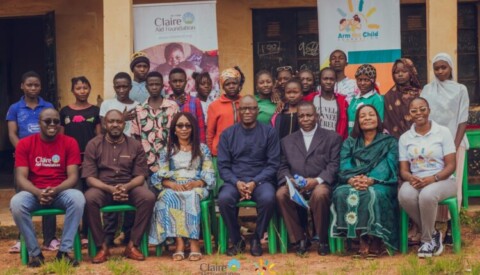The Nigerian Senate has urged the Federal Government to incorporate mental health education into the national academic curriculum to tackle the rising psychological and emotional challenges confronting students and educators nationwide.
Chairman of the Senate Committee on Health, Senator Dr. Ipalibo Harry Banigo, made this call on Monday during a mental health programme organised by the Mandate Health Empowerment Initiative (MHEI) in Abuja.
Delivering the keynote address, Banigo — who also serves as Grand Patron of MHEI and the Association of Mental Health Reform Organisations in Africa — highlighted the strong connection between mental health, discipline, and academic performance.
“Education goes beyond grades; it shapes values, vision, and character. Yet, we cannot expect excellence from a mind weighed down by anxiety, depression, or hopelessness,” she said.
The senator expressed concern over the growing cases of academic burnout, substance abuse, and emotional distress among students and teachers in Nigeria and across Africa, stressing that such issues are often ignored, misinterpreted, or stigmatized.
“We must move from silence to action, from stigma to support. Schools should not only promote intellectual growth but also ensure psychological safety and emotional well-being,” Banigo stated.
She reaffirmed the Senate Committee’s dedication to ensuring that every learner in Nigeria thrives both mentally and academically, outlining several steps to achieve this.
According to her, “We must work closely with the Ministries of Education and Health to embed mental health education into school curricula, train teachers and counsellors in emotional intelligence, and establish mental health desks in all learning institutions.”
She further recommended community-based mental health awareness for parents, investment in local research, and youth-focused data collection to promote evidence-based policies that enhance education, well-being, and national development.
The event featured two flagship activities by MHEI — a National Students–Parents–Teachers Roundtable in Abuja and a continental webinar hosted under the Association of Mental Health Reform Organisations in Africa (AMHROA).
The national roundtable, held at the Federal Ministry of Education Secretariat, gathered over 120 participants, including students from five secondary schools, parents, teachers, education officials, and representatives of NGOs, to discuss strategies for promoting mental wellness in schools.
The webinar, which drew 54 participants from 14 African countries — including Nigeria, Kenya, Ghana, South Africa, and Uganda — extended the conversation to regional mental health and education reforms.
Founder and President of MHEI, Dr. Ameh Abba, emphasized that mental health should be treated as a developmental priority rather than merely a medical concern.
“For too long, mental health has been confined to hospitals, viewed as a medical issue rather than a key driver of societal progress. Today, we reaffirm that mental well-being is essential to academic success, national productivity, and community growth,” he said.
Dr. Abba also underscored the importance of emotionally supportive learning environments and empathetic teaching practices in building resilience among students.
“What we’re witnessing is growing momentum — from schools, families, and governments — to recognize mental health as both a fundamental right and a cornerstone of sustainable development,” he added.
“This marks the beginning of a continental movement to embed mental well-being at the heart of Africa’s education systems.”





